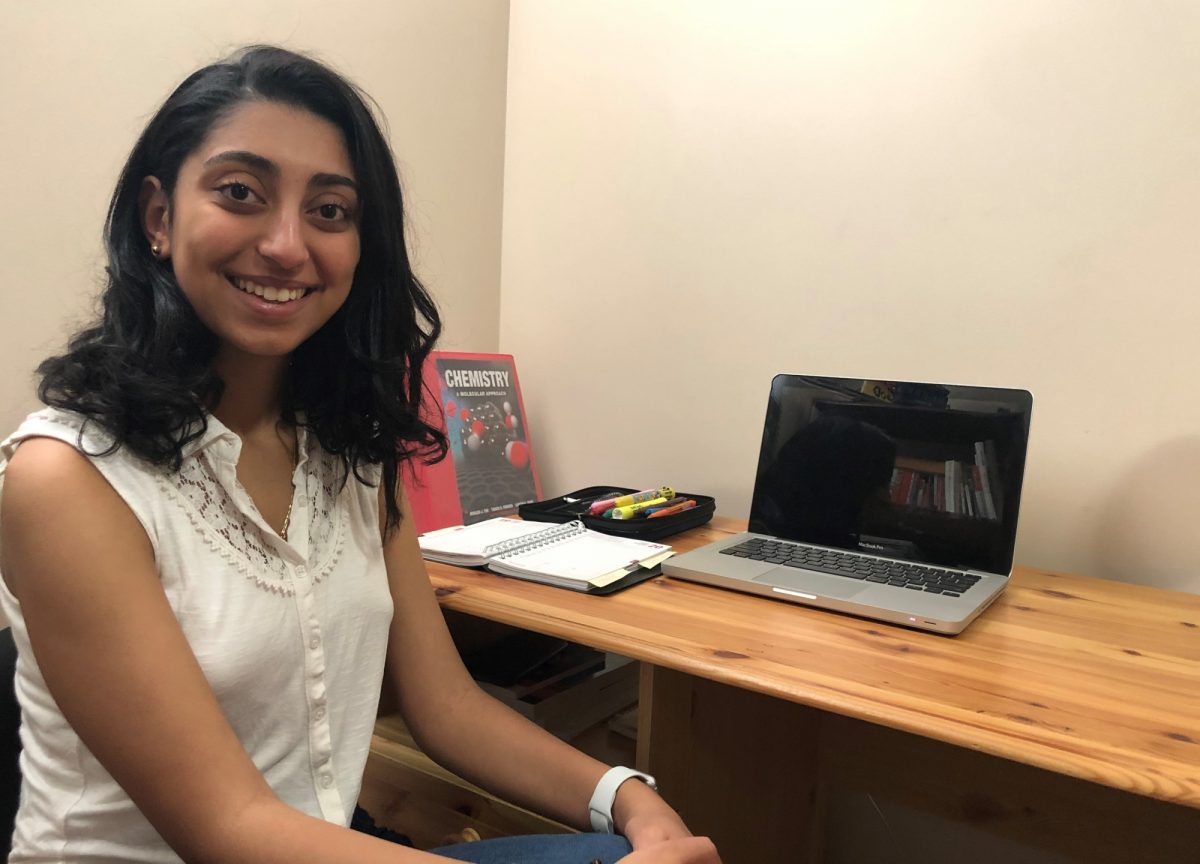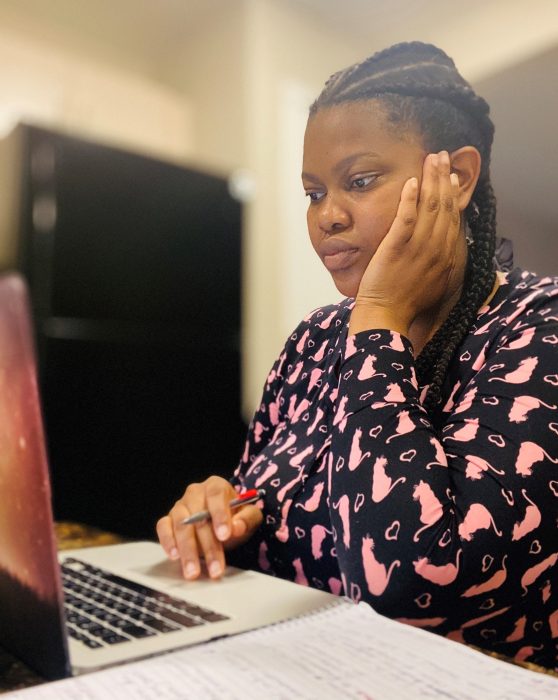
Miray Eskandar, a first-year bachelor of health sciences student, sits in one of the spaces she studies in at home.
COVID-19 summer work disruption sends students back to class
School’s out for the summer; but not for all. Some learners in the Rady Faculty’s Interdisciplinary Health Program opted to enroll in summer courses this year due to scarce summer jobs during the COVID-19 pandemic.
Miray Eskandar, a first-year bachelor of health sciences student, had a summer job lined up with the UM’s Mini U Programs, but the camps were cancelled this year because of the pandemic. Eskandar planned on taking two online courses this summer but decided to take an additional course given the situation.
“I just thought it would be a good way to lighten the load for me next year,” Eskandar said. “In a really uncertain climate this is a certainty I had, and that way I had something to do with all the time in the summer now that we’re all at home.”
Oluwanifemi Adeoye, a fourth-year bachelor of health studies student, said that one of the reasons she isn’t working this summer is because of the pandemic. So she decided to also enroll in more courses than she had planned.

Oluwanifemi Adeoye, a fourth-year bachelor of health studies student, works on her summer courses at home.
“Taking courses online is good because you’re home and you can take classes at your own pace,” Adeoye said. “You can figure it out on your own time.”
Taking six courses will allow Adeoye to graduate at the end of the summer.
“It is great to see students turning the difficulties brought on by the pandemic into a positive situation to advance their academic careers,” said Dr. Mark Nachtigal, program director of the Interdisciplinary Health Program.
While the students are making the best of a difficult situation, it hasn’t been easy.
Eskandar said she is feeling the isolation of studying at home during the pandemic but has found ways to adapt. Her on-campus routine was to study in a library, surrounded by the energy of other students doing the same. She would move to a different library every few hours to be surrounded by a different atmosphere.
To replicate that experience at home, she is studying in different locations throughout her house. She will spend time studying in her basement, then move to the backyard, and then on to her room.
Adeoye prefers the in-person interactivity of a course taught in the classroom to online classes.
“You would think that studying from home would make learning easier, but it’s not as easy as I thought it would be,” she said.
However, she is staying focused on her courses and eyeing the end of the summer when she graduates.
Following social distancing guidelines, Eskandar is now starting to meet up with friends who are also taking summer courses. It is giving her a sense of community and offering a bit of motivation to keep going as if she was still on campus.
“I always try to look for the silver lining,” Eskandar said. “Everything is still uncertain so I don’t know what tomorrow or the next few months are going to look like, but I do know that the lightened course load will be of benefit to me.”






